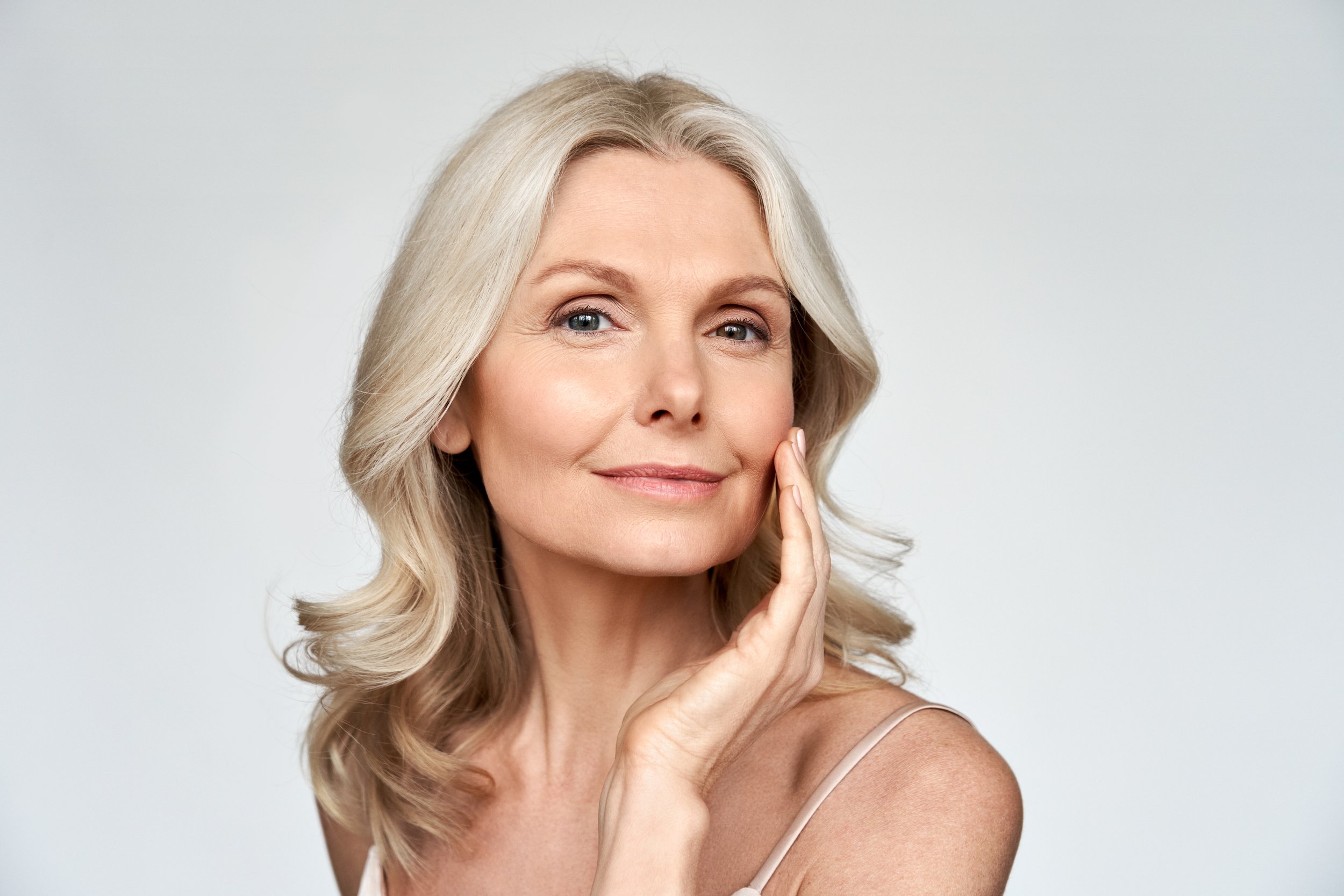Anti-Aging Tips: Part 2 — Unlocking the Secrets to Youthful Skin
We’ve got practical tips to maintain youthful, healthy skin at any age — based on scientific research!
Part 1 Recap: The Science of Skin Aging
In the first of our anti-aging blogs, we covered some basics. It's crucial to understand the underlying processes to counteract skin aging. Key factors include:
Collagen and Elastin Loss: Aging leads to a decline in collagen and elastin production, causing skin to lose elasticity and firmness.
UV damage: Direct damage of cellular DNA by UV radiation and pollution, and free radical generation, harm skin cells, leading to premature aging.
Inflammation: Chronic inflammation, which results from oxidative stress, contributes to skin aging by breaking down collagen and accelerating wrinkle formation.
Dehydration: As we age, our skin's ability to retain moisture decreases, resulting in dryness and the appearance of fine lines.
Science-backed Strategies for Youthful Skin
Sun Protection
Avoiding sun exposure is one of the simplest and most cost-effective ways to prevent premature skin aging. It’s number one on every dermatologist’s list!
Protect your skin by:
Using Sunscreen: Apply a broad-spectrum sunscreen with SPF 30 or higher daily and reapply after swimming, sweating, or if outside for longer than two hours.
Wearing Protective Clothing: Use hats and long-sleeved clothing to shield your skin from the sun's harmful rays.
Avoiding peak sun hours: Minimize prolonged sun exposure, especially between 9 a.m. and 4 p.m.
Topical Antioxidants
Antioxidants like vitamin C and vitamin E help combat oxidative stress and protect skin cells. Scientific studies support using antioxidant-rich skincare products to reduce redness, blotchy discoloration, and fine lines. This past blog covers more.
Retinoids
Retinoids, derived from vitamin A, have been recommended and loved by dermatologists for years due to their ability to stimulate collagen production, improve skin texture, diminish discoloration, and reduce the appearance of fine lines and wrinkles. There are many topical retinoids available, both over-the-counter and prescription strength. Consult one of our dermatologists for recommendations of the best retinoid for you.
Hydration
Hydrated skin looks plump and youthful:
Drinking plenty of water is important to maintain skin firmness. Dehydrated skin is more saggy (think of a wilted flower).
Using moisturizers with humectants, emollients, and ceramides helps decrease dryness of the upper layer of the skin, which will minimize the appearance of fine lines.
Dietary Choices
Scientific studies emphasize the importance of a balanced diet rich in antioxidants, vitamins, and minerals for our bodies’ overall health. As the body’s biggest organ, our skin benefits from a well-balanced diet:
Vitamin C and essential amino acids are the building blocks of collagen. You can get them from fruits, green leafy vegetables, legumes, nuts, and fish.
Nutrients such as vitamins E and A, omega-3 fatty acids, and zinc promote skin health and combat aging by fighting free radicals and maintaining a healthy skin barrier function.
Lifestyle Factors
Stop smoking: Smoking accelerates skin aging by depleting collagen and restricting blood flow. Quitting smoking can significantly improve skin health.
Manage stress: Chronic stress can exacerbate skin aging. Relaxation techniques like meditation and yoga may help reduce stress levels.
The Big Takeaway
A combination of sun protection, antioxidants, hydrating skincare, and a nutrient-rich diet, while avoiding skin-damaging habits, can go a long way in counteracting the effects of skin aging. By integrating these science-backed strategies into your daily routine, you can unlock the secrets to healthier, more youthful skin at any and every age.
Any questions? Looking for personalized recommendations?
For personalized guidance in maintaining healthy skin, consult one of our board-certified dermatologists. Along with skincare, we can assess your skin's needs and recommend and perform treatments such as chemical peels, microneedling, laser therapy, neuromodulators, and filler injections. Please contact SSDP to schedule an appointment with any of our physicians.



